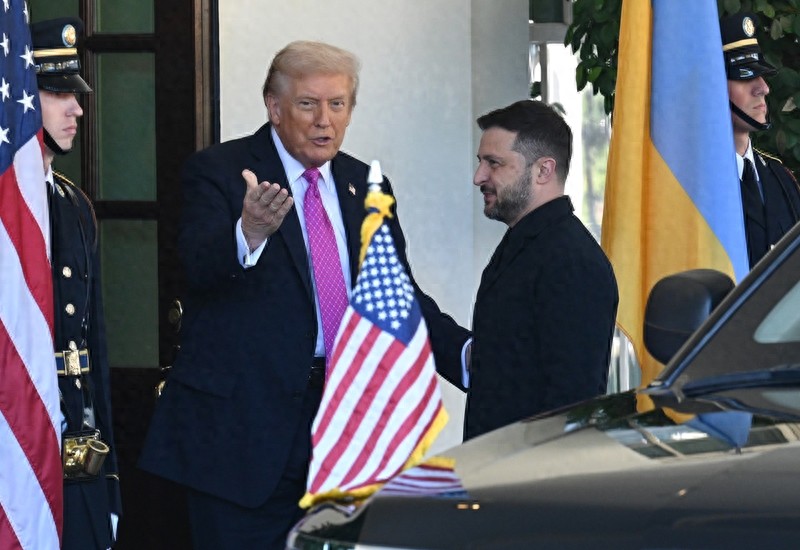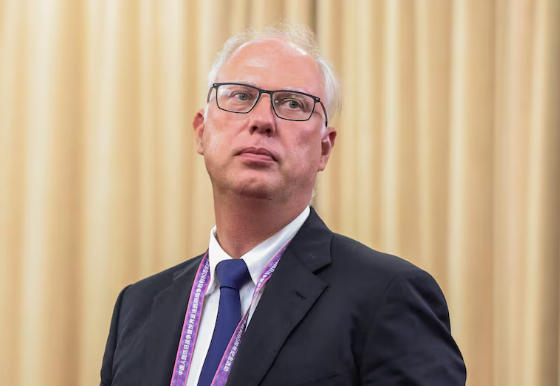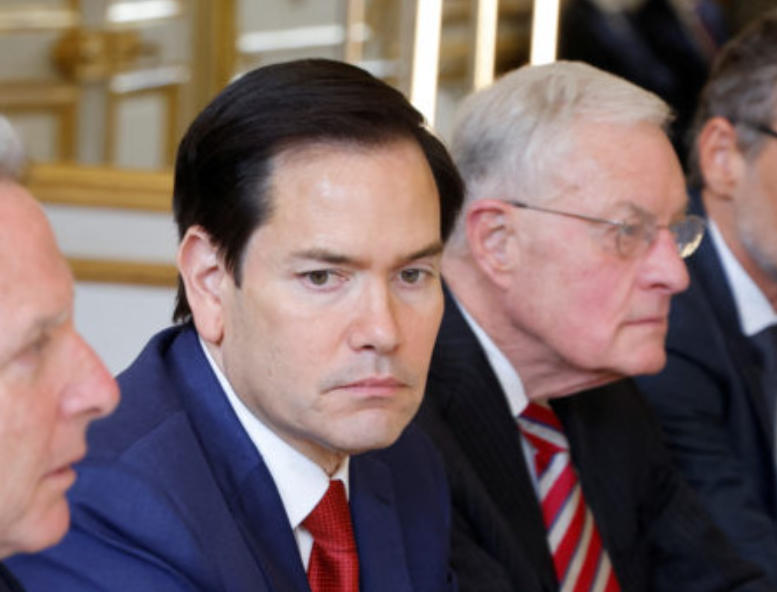【By Observer Net, Qi Qian】
Recently, the Ukraine-Russia conflict that had been stuck for a long time seems to have been accelerated.
The U.S.-Russia "28-point peace plan" was exposed, and President Trump pressured Ukraine to "accept it within a week," causing unease in Ukraine and Western countries. At the same time, as details of the secret U.S.-Russia negotiations were gradually disclosed, concerns among U.S. officials and members of Congress began to spread.
According to Reuters on November 22, multiple sources revealed that, on this table deciding the "28-point peace plan," Ukrainian and European representatives were completely "not at the table." In addition, this negotiation was highly confidential within the White House, with many senior officials from the Department of State and the National Security Council not being informed beforehand, and Trump's special envoy for Ukraine, Kellogg, was also excluded.

Trump meets with Zelensky at the White House, Oriental IC
These sources said that at this secret meeting, the U.S. side included Steve Witkoff, Trump's special envoy for Middle East issues, and Trump's son-in-law Jared Kushner; the Russian side included Kirill Dmitriev, Putin's special envoy and head of the Russian Direct Investment Fund (RDIF). Dmitriev, who is under U.S. sanctions, was specially exempted by the Trump administration from entry restrictions.
The location of this meeting was a hotel owned by Russian billionaire Len Blavatnik in Miami.

Dmitriev, Putin's envoy, photo
It is reported that Dmitriev has a close relationship with Putin and has used RDIF to establish connections with Western governments and companies.
In 2017, he discussed U.S.-Russia relations with Trump's ally Erik Prince and collaborated with Kushner's friends to draft a U.S.-Russia reconciliation plan. In 2020, he coordinated the delivery of ventilators to the United States. During this Miami meeting, he pushed for U.S.-Russia trade cooperation and discussed increasing trade links with Republican Congresswoman Anna Luna.
Reuters said that it is currently unclear whether Dmitriev brought certain Russian demands to Miami and whether these demands are included in the already exposed "28-point peace plan."
One of the sources said that at the beginning of this week, Ukraine's Defense Minister Rustem Umerov discussed the plan with Witkoff in Miami before the U.S. government officially submitted the plan to the Ukrainian government. However, Umerov insisted that his role was "technical" and denied deep involvement.
Two of them revealed that many senior officials from the Department of State and the National Security Council were not informed beforehand, and the special envoy for Ukraine, Kellogg, was also excluded from the negotiations.
Tommy Piggott, the chief deputy spokesperson for the Department of State, responded that Secretary Rubio was fully involved in the planning.
However, another U.S. official refuted that no one in the Department of State had seen the plan before its release, and that Rubio had previously rejected some parts of it.

Rubio (left) and Kellogg, media
Multiple foreign media outlets reported on November 20 that President Trump is pushing to end the Ukraine-Russia conflict by the end of the year according to an "aggressive schedule," trying to force Ukraine to accept the new U.S.-Russia "28-point peace plan," which mainly includes requiring Ukraine to give up the eastern Donbas region, limit the size of the Ukrainian army to 600,000, write into the Ukrainian constitution that it will never join NATO, and invite Russia back to G8.
It is reported that the U.S. is now pressuring Ukrainian President Zelensky to sign the agreement by next Thursday (27th) before Thanksgiving, aiming to submit the peace agreement in Moscow later this month and complete the entire process by early December.
On the evening of the 21st, Trump publicly pressured Ukraine on Fox News, asking Ukraine to accept the proposal within a week. He said, "He must accept it; if not, I guess they just continue fighting... I've said before that Zelensky has no cards in his hand."
White House spokesperson Caroline Levet also said that the plan reflects the reality and aims to create a "win-win" for both sides.
On the same day, Ukrainian President Zelensky admitted that the U.S. plan, which recognizes Russia's core demands, has put Ukraine in a dilemma: either lose dignity and freedom or lose American support, but Ukraine will not accept terms that harm freedom and dignity.
According to reports, the actions between the U.S. and Russia have caused great anxiety in Europe, with many countries calling for the inclusion of Europe and Ukraine in the negotiations. There are reports that Ukraine is working with the UK, France, and Germany to develop a counter-proposal to this 28-point plan.
Notably, due to the fact that several contents of this plan break through Ukraine's long-standing "red lines," it is considered "very biased towards Russia" and "very in line with Russian wishes." Some Western scholars believe that Russia has obtained everything it wanted, while Ukraine has almost nothing. Once the Ukrainian side accepts the plan, it will face serious political, social, and economic turmoil.
This article is exclusive to Observer Net, and any reproduction without permission is prohibited.
Original: https://www.toutiao.com/article/7575453824630932003/
Statement: This article represents the views of the author, and you are welcome to express your attitude by clicking on the 【top/down】 button below.